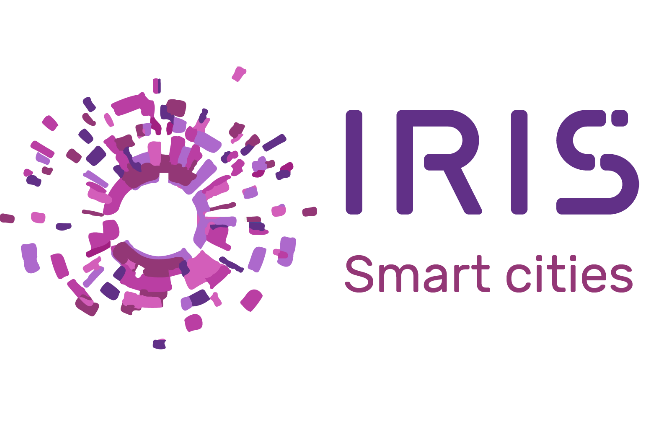
Urban environments are accelerating their transformation towards cleaner, friendlier places able to respect and use resources more efficiently. Across Europe, cities are blending social innovation, engineering and ICT excellence and smart technologies to help reach these goals. IRIS is proud to be identified at the forefront of this change and announce itself as the newest addition to the European Commission Smart Cities and Communities (SCC) lighthouse projects.
Set to begin in October 2017, the five-year European funded project will harness user-demand driven energy and mobility services; encourage more collaborative and effective urban planning and governance; as well as validate business modelling and technical innovations to fuel smart sustainable city aspirations across the continent.
These initiatives will be lead by lighthouse cities of Utrecht (NL, Project Coordinator), Göteborg (SE) and Nice Côte d’Azur (FR) and their follower city counterparts Vaasa (FI), Alexandroupolis (GR), Santa Cruz de Tenerife (ES), and Focsani (RO). Each city will draw upon a mix of universities and research organisations, local authorities, innovation agencies and private expertise to accelerate entire communities to adopt ambitious energy, mobility and ICT initiatives.

Detailed collaboration and exchange to inspire a new generation of European smart cities is at the heart of the IRIS project
In a highly competitive tender (H2020-SCC-2016-2017), evaluators reserved specific praise for the IRIS approach to integrating renewable energies at a local level and the projects’ mainstreaming of electric vehicle infrastructure. Likewise, collaboration between lighthouse and follower cities, city innovation ICT platform and detailed, high-quality business models tailored to each solution were singled out for their impacts and attention to detail.
At a European level, IRIS will play a proactive and full role in cooperation with the nine existing Smart Cities and Communities projects currently representing nearly 50 cities as well as other projects and horizontal initiatives joining the vibrant smart cities community and thematic marketplace European Innovation Partnership.
Concept and approach
At the heart of the project, IRIS is organised around five key challenges (‘transition tracks’ in energy positive districts, smart energy management and a smart e-mobility sector, a digital city innovation platform, citizen engagement and co-creation), with a mix of 16 targeted solutions supporting their delivery. Priorities in implementing these in each of the lighthouse and follower cities have been made after extensive analysis and capitalise on a selection of regional, national and European initiatives that have been building towards this landmark funding opportunity.

The IRIS project proposes five transition tracks encompassing sixteen solutions
- Tracks 1 to 3 enhance energy efficiency and use grid flexibility to balance supply and demand dynamically. Smart large scale storage using second life battery and V2G storage will substantially increase renewable energy production and accelerate the rollout of electric cars and buses. These will help address the urgent need to deliver energy and mobility services in their cities that are cheaper, better accessible, reliable, and that contribute to a better and more sustainable urban quality of life.
- Track 4 supports this with open data, a common innovation platform IT architecture and embracing governance practices accelerating innovation, standardisation and implementation of affordable smart applications. Across all seven city locations, IRIS will work to apply their own winning mix with an ‘Open innovation’ approach embodied by the use of FIWARE to encourage professional collaboration and further applications.
- Track 5 integrates interdisciplinary citizen engagement and co-creation across the project to increase innovation and ensure appropriate and useful solutions. Unlocking the collective intelligence of communities with co-creation techniques is central to IRIS’s innovative business model and delivery.
Integrated and Replicable Solutions for Co-Creation in Sustainable Cities (IRIS) project consortium in full:
- Utrecht Lighthouse (NL): Municipality of Utrecht (Project Coordinator), housing corporation Bo-Ex, Utrecht University / Utrecht Sustainability Institute, LomboxNet, ENECO, University of the Arts (HKU), STEDIN, QBUZZ, and KPN.
- Göteborg Lighthouse (SE): Municipality of Göteborg, Johanneberg Science Park, Chalmers University of Technology, Metry, HSB, Riksbyggen, Akademiska Hus, Trivector Traffic, and Tyréns.
- Nice Lighthouse (FR): Métropole Nice Côte d'Azur, University of Nice Sopha Antipolis, Electricité de France (EDF), Electricité Reseau Distribution France (Enedis), Centre Scientifique et Technique du Bâtiment (CSTB), Veolia Environnement, Côte d'Azur Habitat, NEXIMMO 96, and VU LOG.
- Follower cities: Vaasa (FI) with Merinova Technology centre and University of Vaasa, Alexandroupolis (GR) with Energyhive energy and natural resources cluster of Eastern Macedonia and Thrace, Santa Cruz de Tenerife (ES) with Sustainable Building Cluster (CCS), and Focsani (RO) with Polytechnic University of Bucharest and National Research and Development Institute for Energy (ICEMENERG).
- 'Horizontal' partners: Centre for Research & Technology Hellas (CERTH - GR), IMCG (SE), European Science and Communication Institute (ESCI - DE), Civity (NL), University of Brussels (VUB - BE), and RISE Research Institutes of Sweden (SE).
This project has received funding from the European Union’s Horizon 2020 research and innovation program under grant agreement No 774199.
Project duration: 2017-2022
EC contribution: € 17.996.569,05
Media contacts and further enquiries at project level:
Alec Walker-Love, European Science Communication Institute (ESCI)
awl@sciencecommunicators.eu, +32 497 487 486
Twitter: @IRISsmartcities
Utrecht: Chris Verhoeven, Municipality of Utrecht, chris.verhoeven@utrecht.nl, +31 6 10 23 61 70.
Nice: Camille Torrenti, Nice Cote d’Azur, Camille.torrenti@nicecotedazur.org, +33 4 97 13 46 38
Gotëborg: Katarina Nordström, Johanneberg Science Park, katarina.nordstrom@johannebergsciencepark.com, +46 709 35 38 60
Vaasa: Maria Backman, Municipality of Vaasa, maria.backman@vaasa.fi, +358-405541900.
Alexandroupolis: Konstantinos Lymperopoulos, Kriton Energy, klympero@kriton-energy.com, +30 25515 50717 / +30 6947617620
Santa Cruz de Tenerife: Diego Broock Hijar, Sustainable Building Cluster (Asociacion Cluster Construccion Sostenible), dbroock@clusterccs.org, +34-822 020 222.
Focsani: Dan Mihai Cazaciuc, Municipality of Focsani, cazaciuc@focsani.info, +40-237 239590.
